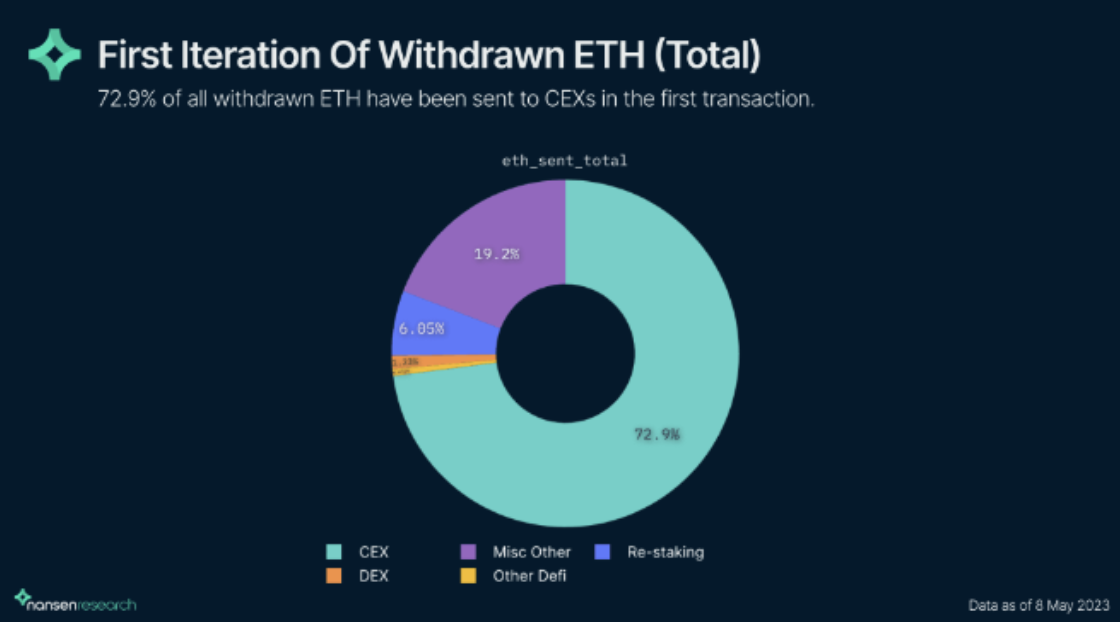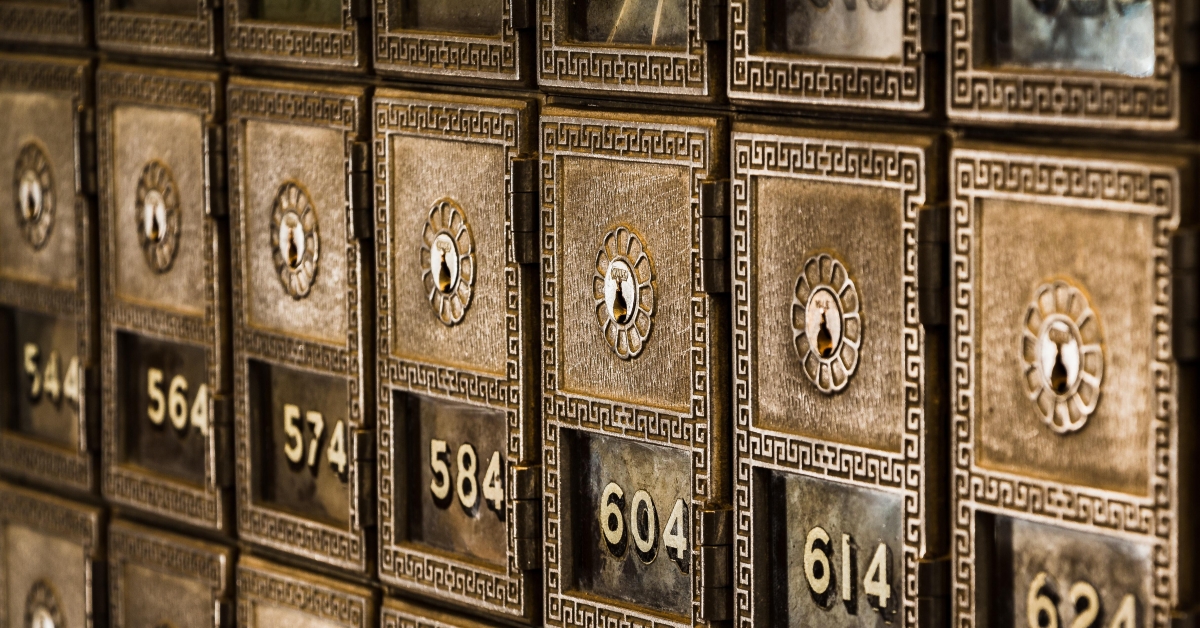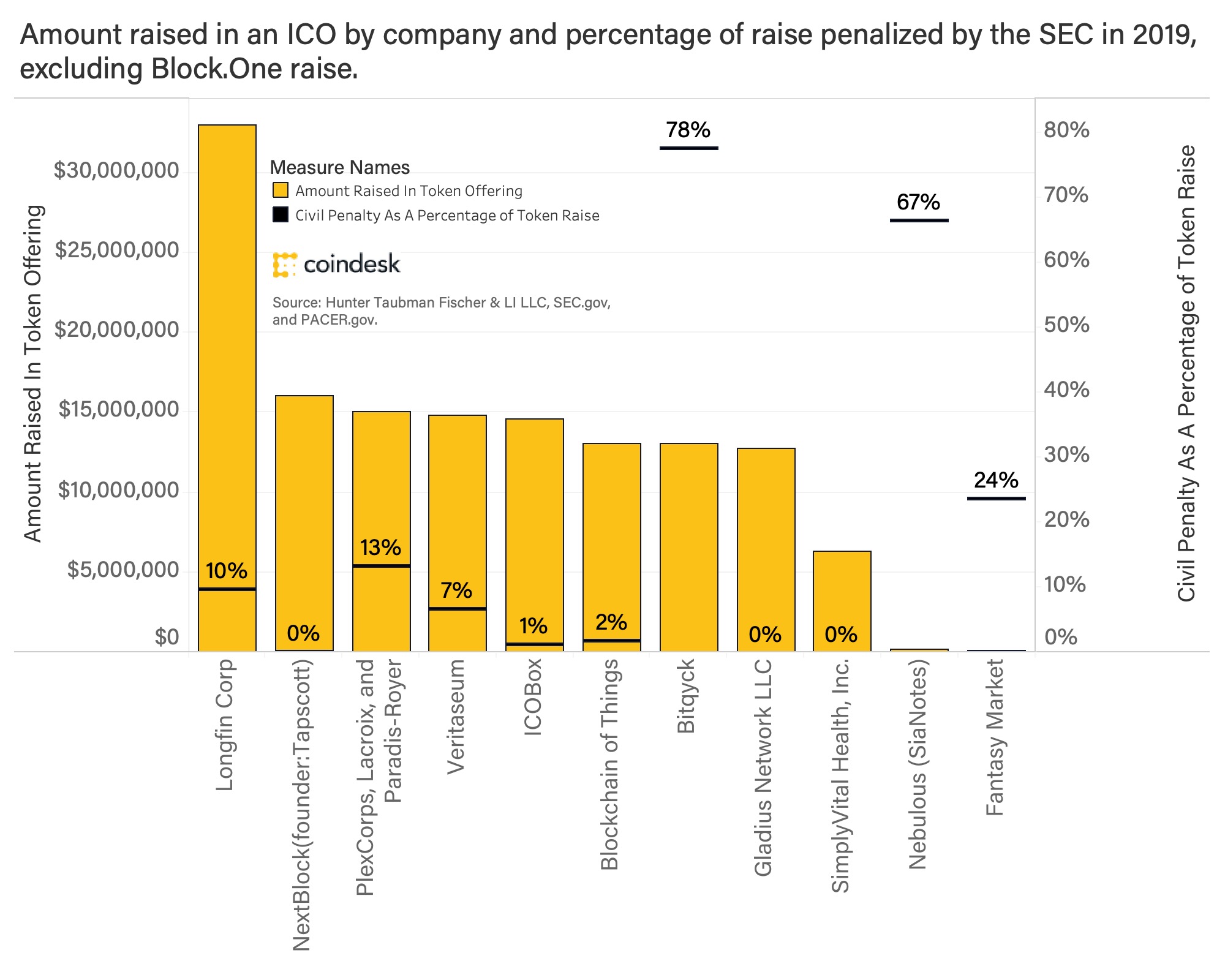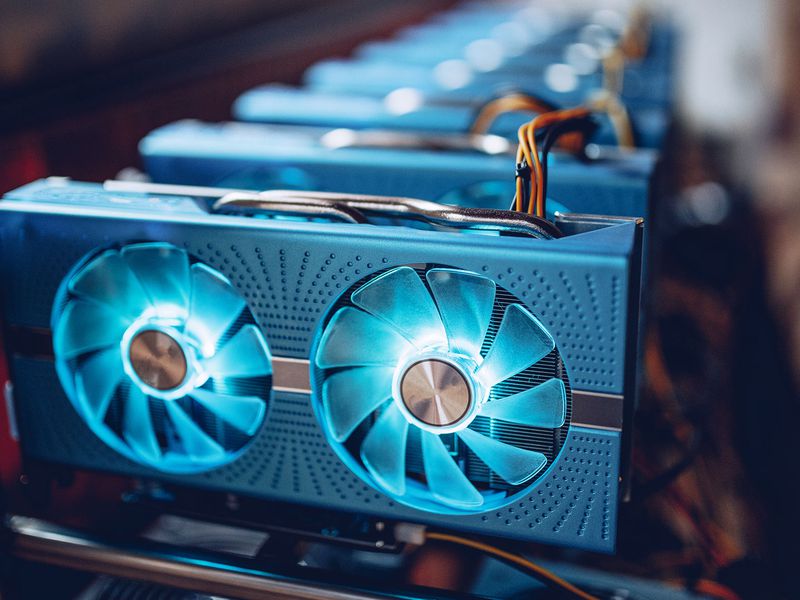Ether Selling Pressure Post-Shanghai Upgrade Was ‘Non-Event,’ Says Nansen
:format(jpg)/s3.amazonaws.com/arc-authors/coindesk/3511dac7-07ba-4423-9003-82143ec00eab.png)
Sage D. Young is a tech protocol reporter at CoinDesk. He owns a few NFTs, gold and silver, as well as BTC, ETH, LINK, AAVE, ARB, PEOPLE, DOGE, OS, and HTR.
In hindsight, the selling pressure of ether (ETH), Ethereum’s native token, turned out to be a “non-event” following the Shanghai upgrade, which enabled staking redemptions for the first time, according to a report from blockchain analytics firm Nansen.
Over a month has passed since the Shanghai upgrade that marked Ethereum’s full transition to a proof-of-stake blockchain, and ETH staking deposits have surpassed withdrawals, making the number of staked ETH climb to 19.55 million at presstime, a new all-time high. As a result, the May 8 report stated “that the elimination of unstaking risks has thus far offset selling pressure from withdrawals.”
In the weeks building up to Shanghai, crypto bulls and bears debated extensively about the market’s potential response following the upgrade. The price of ETH has decreased about 8% to $1,851, since April 13 when Shanghai went live, per CoinDesk data. The CoinDesk Market Index, designed to measure the broad performance of the digital asset market, has dropped nearly 10% in the same time period.
“Ultimately, withdrawals have been minimal and have thus far been matched with inflows, signaling strong overall confidence from investors in the network and the asset itself,” according to the Nansen report.
Crypto exchange Kraken, which complied with regulation from the Securities and Exchanges Commission to end its crypto staking-as-a-service platform for U.S customers in February, had the most withdrawals at over 646,000 ETH, with Coinbase, a rival crypto exchange, trailing behind with more than 376,000 ETH.

(Nansen Research)
While roughly 73% of the ETH withdrawn from staking has been sent to centralized exchanges (CEXs) like Kraken and Coinbase, the majority of withdrawn ETH is CEXs withdrawing ETH to themselves.
“This means that the majority ETH being sent to CEXs is not primarily for selling, but for the exchange’s internal operations,” according to Nansen.
Edited by Bradley Keoun.
DISCLOSURE
Please note that our
privacy policy,
terms of use,
cookies,
and
do not sell my personal information
has been updated
.
The leader in news and information on cryptocurrency, digital assets and the future of money, CoinDesk is a media outlet that strives for the highest journalistic standards and abides by a
strict set of editorial policies.
CoinDesk is an independent operating subsidiary of
Digital Currency Group,
which invests in
cryptocurrencies
and blockchain
startups.
As part of their compensation, certain CoinDesk employees, including editorial employees, may receive exposure to DCG equity in the form of
stock appreciation rights,
which vest over a multi-year period. CoinDesk journalists are not allowed to purchase stock outright in DCG
.
:format(jpg)/s3.amazonaws.com/arc-authors/coindesk/3511dac7-07ba-4423-9003-82143ec00eab.png)
Sage D. Young is a tech protocol reporter at CoinDesk. He owns a few NFTs, gold and silver, as well as BTC, ETH, LINK, AAVE, ARB, PEOPLE, DOGE, OS, and HTR.
Learn more about Consensus 2024, CoinDesk’s longest-running and most influential event that brings together all sides of crypto, blockchain and Web3. Head to consensus.coindesk.com to register and buy your pass now.
:format(jpg)/s3.amazonaws.com/arc-authors/coindesk/3511dac7-07ba-4423-9003-82143ec00eab.png)
Sage D. Young is a tech protocol reporter at CoinDesk. He owns a few NFTs, gold and silver, as well as BTC, ETH, LINK, AAVE, ARB, PEOPLE, DOGE, OS, and HTR.









